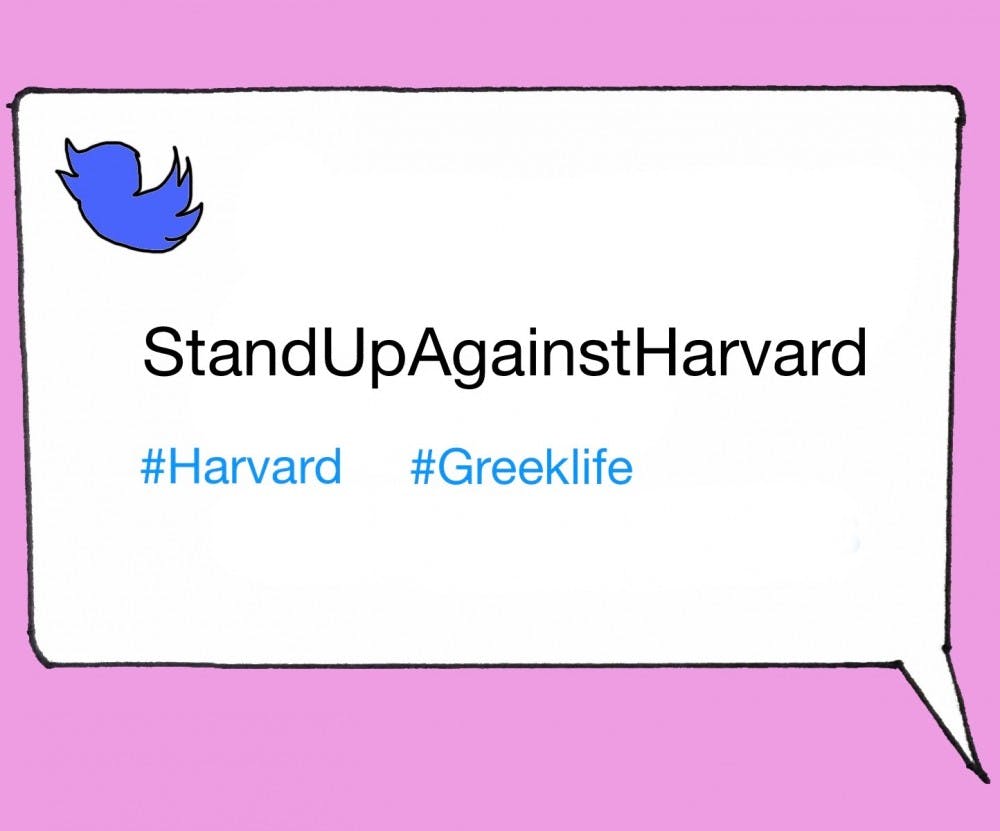A recent column, “On #StandUpToHarvard and club purpose,” addresses the recent lawsuit filed by Kappa Alpha Theta and Kappa Kappa Gamma against Harvard, following the University’s ban on single-sex Greek organizations. The column argues that Greek organizations are failing to keep up with the progressive movements in gender and women’s empowerment, and thus need to rebrand themselves to maintain their places on university campuses. The author states, “Greek organizations will have to do better in defining their missions and objectives to the public eye and the schools around which they operate. Simply appealing to concepts of tradition, opportunity, and brother or sisterhood in a more critical and mindful world becomes less effective each day.”
This column misjudges Greek life on university campuses. I would argue, however, that these misconceptions are not the fault of the Greek organizations themselves, but the administrations of the universities in which they are embedded.
I have written before about Greek life on Princeton, and I have always been open about my bias toward the entity. I participated in recruitment at the start of my sophomore year, loved the organization I joined — Kappa Alpha Theta — from the very beginning, and have since served in two officer positions. I am not writing from a neutral background.
I have participated in both sides of recruitment, the week in which potential new members choose and are chosen by the campus sororities. After having helped to administer Kappa Alpha Theta throughout the year, I am confident that the organization maximizes opportunities to advocate for its benefits beyond simply advertising “traditions” or “sisterhood.”
In fact, many important traditions are not spoken about outside of official sorority business because of regulations by Nationals, and are thus not used as a means of advocacy. The aspect of a “sisterhood” is important, but it is not the lone aspect of the identity conveyed by Greek organizations as the column suggests.
The other factors in sororities’ identity do — despite the author’s doubts — work hard to “remove the stereotypical image of little more than controversial Hellenistic funhouses.” During the University’s Theta recruitment, we spoke about members who have gone on to be Fulbright and Rhodes scholars, departmental highest honors recipients, philanthropic leaders, and powerful women in business and entrepreneurship. Though we do have events — ones that are in fact just for fun — many of our events in public spheres on campus center around philanthropy for CASA (Court Appointed Special Advocates). Any member of Theta would talk about the networking opportunities, the supportive relationships, and inspiring fellow members that Theta provided. Indeed, the formals might be brought up as an afterthought.
I argue that the misconception of Greek organizations only advertising for a “brother or sisterhood” shown by the author in this column is not the fault of the organizations themselves, but the fault of the University for refusing to recognize Greek organizations.
It is difficult to obtain maximum participation for our philanthropic events when we cannot officially book a room on campus. Discussing the organization with any member of the University administration is seen as taboo, and we are often received with dismissal or an eye roll.
If regular communication with the University administration were allowed, Greek organizations could effectively be rebranded to keep up with the “increasingly critical and mindful world.” This argument is not specific to Harvard. Increased communication between Greek life and the University would allow sororities and fraternities to exist in a way that benefits both parties, instead of the legal chaos that has ensued since the ban.
Morgan Lucey is a senior neuroscience major from Scottsdale, Ariz. She can be reached at mslucey@princeton.edu.









